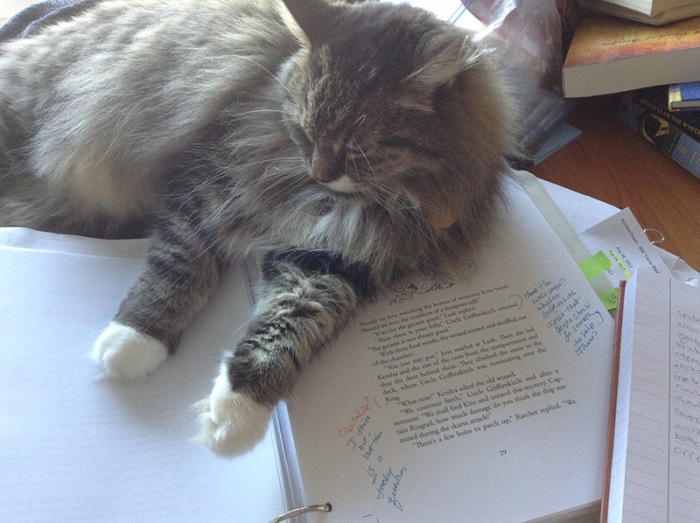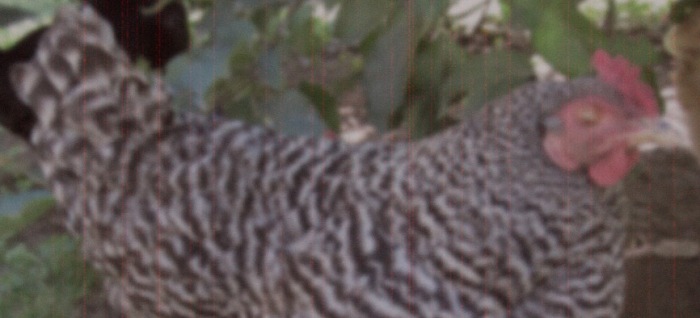
In my most recent workshop in my series on family stories, I asked my students to imagine an ancestor who met a famous historical figure. In most cases, this meant the ancestor was completely invented—however, the students needed to make decisions that were plausible. For example, if their heritage was Celtic, it would be very unlikely for them to have met Genghis Khan.
I’ve endeavored to write these assignments myself. So, for this week, I decided to imagine that I had an ancestor who met King Matthias 1, who was the king of Hungary and Croatia in the middle ages.
There are many legends about King Matthias involving a raven and a ring.
One legend says that, one day, King Matthias removed a ring from his finger and a raven grabbed it and flew off. Matthias chased down the raven, slew it to get his ring back, then took the raven as his heraldic emblem.
Another version says that, upon the death of the current king, Matthias’s mother beckoned young Matthias from Prague, where he was at court, by sending a raven with a golden ring from Transylvania. Thus Matthias was crowned and became known as the boy king of ravens. (By the way, “Corvinus” is Latin for raven.)
The ring became his signet seal and, to this day, you can find imagery of a raven with a ring in its beak throughout Budapest. My own photograph from the gates to Budapest Castle is at the top of this post.
My story is below. I chose the name of Jakob for the main character, since that was the name of my paternal great-grandfather, pictured with his family here (my grandfather is the little child in the smock):

* * *
Jakob stuck his grimy face over the sill of the window and gazed down at the street below. It was a typically busy day in the streets of Buda. Vendors were calling out to ply their wares, horse carts laden with goods rattled over the cobblestones, and citizens from every walk of life crisscrossed as they went about their daily affairs.
Jakob ducked back behind the window and leaned against the wall of the storeroom above the tavern. It was a good place to get out of the cold, or the heat, and to snatch a few winks. The tavern keeper let Jakob and his brother Lukas stay there in exchange for sweeping the floors and cleaning the stables out back.
“Well?” Lukas asked Jackob. “Any sign of her?”
“Not yet,” Jakob replied. “You have to be patient.”
“It’s hard to be patient when you’re hungry.”
Jakob snorted. Like he didn’t know. The smell of fresh-baked bread was wafting up from the streets below, taunting his stomach.
Suddenly, the two boys heard the flutter of wings and a giant black bird alit on the window sill. Jakob and Lukas looked up eagerly. The raven cocked her head in their direction. She was clenching a glinting silver coin in her beak.
Jakob sprang to his feet, held out his hand, and the raven dropped the prize into his waiting palm. Then she hopped onto shoulder, cawing raucously in his ear.
“Yes, Corvina,” Jakob soothed her. “You did well. Who did you prise this treasure from, I wonder? Some careless nobleman? A distracted merchant?”
“Who cares?” Lukas interjected. “Let’s go spend it. My stomach’s growling like a dragon.”
Jakob smiled. Corvina hopped down to his scrawny forearm. She was so heavy, it took considerable strength to keep his arm held up. With his free hand, he stroked her pretty black feathers.
He had found the raven when she was just a fledgling. She had been fluttering along the cobblestone streets of Buda, one wing hanging awkwardly at her side. Jakob had known that it would only be a matter of time before a dog or cat snatched her, so he had scooped her up and taken her back to his hidey-hole. Some of the other street urchins had wanted to snap her neck, pluck her feathers, and eat her for a quick supper. But Jakob had known she wouldn’t offer much succor for the stomachs. She had been so small. So he had decided to train her and keep her as a pet.
It had turned out to be a brilliant idea, because Corvina had turned out to be muchmore than a pet. She was a master thief, filching every glittering bauble, charm, or curio she could get between her beak. Thanks to Corvina, Jakob and Lukas ate better than most orphans.
Jakob went down to the street, purchased a loaf of bread, and met Lukas and Corvina on a grassy knoll overlooking Buda Castle.
“Hey, share with Corvina,” Jakob reprimanded Lukas. The boy was gnawing on his bread like a savage animal. Jakob offered some of his own loaf to the raven, but she immediately squawked for more.
“You give her yours,” Lukas said between mouthfuls. “She’s your bird.”
“And it’s her bread,” Jakob retorted.
Once the meal was finished, the two boys sat back and gazed at the magnificent spires of the castle, reaching into the sky like ornamented fingers.
“Imagine the sorts of treasure Corvina could pluck from there,” Lukas mused.
“I won’t send her in there,” Jakob said. “There’s plenty of soldiers patrolling the walls. They have spears and pikes and arrows. Too dangerous for her.”
But Lukas couldn’t stop thinking about the riches that Corvina could pluck from the wealthy lords and ladies that dwelled within Buda Castle. He hatched a plan.
The next day, while Jakob was working in the stables, Lukas snuck out into the yard, held out his hand, and clucked his tongue, just as he had seen his brother do. It wasn’t long before Corvina fluttered down to a nearby branch and looked at the boy inquisitively. She usually only went to Jakob. But Lukas had kept a few crumbs in his pocket, and now he held them out to coax the raven to his arm.
“Good girl,” Lukas cooed once the raven had hopped down to his shoulder. He glanced over his shoulder to make sure that Jakob hadn’t wondered what he was up to, then snuck out of the yard and made his way towards the castle.
As it happened that day, King Matthias was headed into the town to deliver a speech. So Lukas had not gone very far when he encountered a grand procession leading out of the castle gates consisting of a great retinue of knights, guards, and nobility. And, of course, as part of this great fanfare was King Matthias himself. He was riding a magnificent steed and holding his chin high.
But Lukas did not notice King Matthias’ face so much as he noticed the giant, opulent ring that was on his finger. It featured an enormous gemstone that glimmered enticingly in the sun. There was quite a crowd now, but Lukas carefully worked his way through the throng with Corvina still perched on his shoulder. He eventually reached a tree and scurried up to a low-hanging branch, with Corvina sticking close to his side. From here the boy and the raven had an enviable vantage point of the procession.
Soon enough the king came marching below the branch. There was no ignoring the king’s glamorous ring—not by Lukas or the raven. Indeed, as soon as Corvina spotted the glinting jewel, she plunged down from the branch, landed on the king’s knuckles, and begin tugging fiercely at his jewel.
“What is this? The devil himself!” King Matthias roared. He waved his hand in the air, trying to shake the bird loose, but Corvina would not be denied.
She finally wriggled the ring from the king’s finger and, with the prize secured, fluttered into the sky.
But King Matthias was not to be so easily defeated. He snatched a spear from the nearest guard and with careful aim, hurled the weapon at the escaping bird. It pierced her straight through the torso. With a screech of agony, the raven plummeted downwards, smashing into the street in an explosion of black feathers.
It was at that very moment that Jakob, having just noticed his brother’s absence, came rushing onto the scene. He scooped up the dead raven and watched the glorious ring roll out of her gaping beak.
Suddenly, a shadow loomed over him. Jakob looked up to see none other than King Matthias himself, glaring at him with his steely countenance. His chin was square and strong, and his eyes were the color of burnished armor.
“Is this your bird, boy?” King Matthias demanded.
“Y-yes, sir,” Jakob stammered in response. At first he thought of telling the king that he had not sent the raven to snatch his ring—which was the truth. But another truth was that he had taught the bird to steal. So what was the difference?
King Matthias reached down and picked his ring from the cobblestones and considered it a moment before returning it to his finger. “She was a fierce fighter,” the king said. “And certainly very clever.”
Jakob slowly nodded, cradling the dead bird in his arms. He didn’t care about the treasures anymore; he was in despair over poor Corvina. Then he felt a heavy hand on his shoulder. King Matthias had knelt alongside the boy and looked him directly in the eye.
“Such spirit should be recognized and admired,” the king informed Jakob. “So I tell you this, boy: As you mourn your pet, know that it will be remembered forever more. For I will make it a symbol of my house.”
This was little comfort to Jakob, but he had already learned that life could be tough and unfair. The king rose to his feet and Jakob watched the royal retinue continued its march through the city.
Jakob returned to his life, now without the help of his beloved bird. Eventually he grew up, became a cobbler, and had a family of his own.
True to his word, King Matthias took the symbol of the raven and the ring for his own. One could see depictions of the symbol throughout the entire city. Whenever Jakob’s children and grandchildren asked him about the curious bird, Jakob would simply smile and say, “Did you know she has a name? It is Corvina. And she is the most fierce and clever of all birds.”























